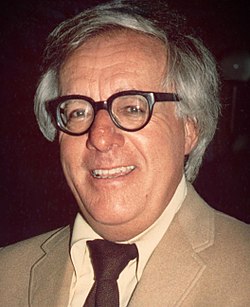Ray Bradbury Quote
Cuando apareció, Darwin cometimos ese error. Lo recibimos con los brazos abiertos y también a Huxley y a Freud, deshaciéndonos en sonrisas. Después descubrimos que no era posible conciliar las teorías de Darwin con nuestras religiones, o por lo menos así pensamos. Fuimos unos estúpidos. Quisimos derribar a Darwin, Huxley y a Freud. pero eran inconmovibles. Y entonces, como unos idiotas, intentamos destruir la religión. »Lo conseguimos bastante bien. Perdimos nuestra fe y empezamos a preguntarnos para qué vivíamos. Si el arte no era más que la derivación de un deseo frustrado, si la religión no era más que un engaño, ¿para qué la vida? La fe había explicado siempre todas las cosas. Luego todo se fue por el vertedero, junto con Freud y Darwin.
Cuando apareció, Darwin cometimos ese error. Lo recibimos con los brazos abiertos y también a Huxley y a Freud, deshaciéndonos en sonrisas. Después descubrimos que no era posible conciliar las teorías de Darwin con nuestras religiones, o por lo menos así pensamos. Fuimos unos estúpidos. Quisimos derribar a Darwin, Huxley y a Freud. pero eran inconmovibles. Y entonces, como unos idiotas, intentamos destruir la religión. »Lo conseguimos bastante bien. Perdimos nuestra fe y empezamos a preguntarnos para qué vivíamos. Si el arte no era más que la derivación de un deseo frustrado, si la religión no era más que un engaño, ¿para qué la vida? La fe había explicado siempre todas las cosas. Luego todo se fue por el vertedero, junto con Freud y Darwin.
Related Quotes
Let my silence grow with noise as pregnant mothers grow with life. Let my silence permeate these walls as sunlight permeates a home. Let the silence rise from unwatered graves and craters left by bomb...
About Ray Bradbury
Bradbury is best known for his novel Fahrenheit 451 (1953) and his short-story collections The Martian Chronicles (1950), The Illustrated Man (1951), and The October Country (1955). Other notable works include the coming of age novel Dandelion Wine (1957), the dark fantasy Something Wicked This Way Comes (1962) and the fictionalized memoir Green Shadows, White Whale (1992). He also wrote and consulted on screenplays and television scripts, including Moby Dick and It Came from Outer Space. Many of his works were adapted into television and film productions as well as comic books. Bradbury also wrote poetry which has been published in several collections, such as They Have Not Seen the Stars (2001).
The New York Times called Bradbury "An author whose fanciful imagination, poetic prose, and mature understanding of human character have won him an international reputation" and "the writer most responsible for bringing modern science fiction into the literary mainstream".
